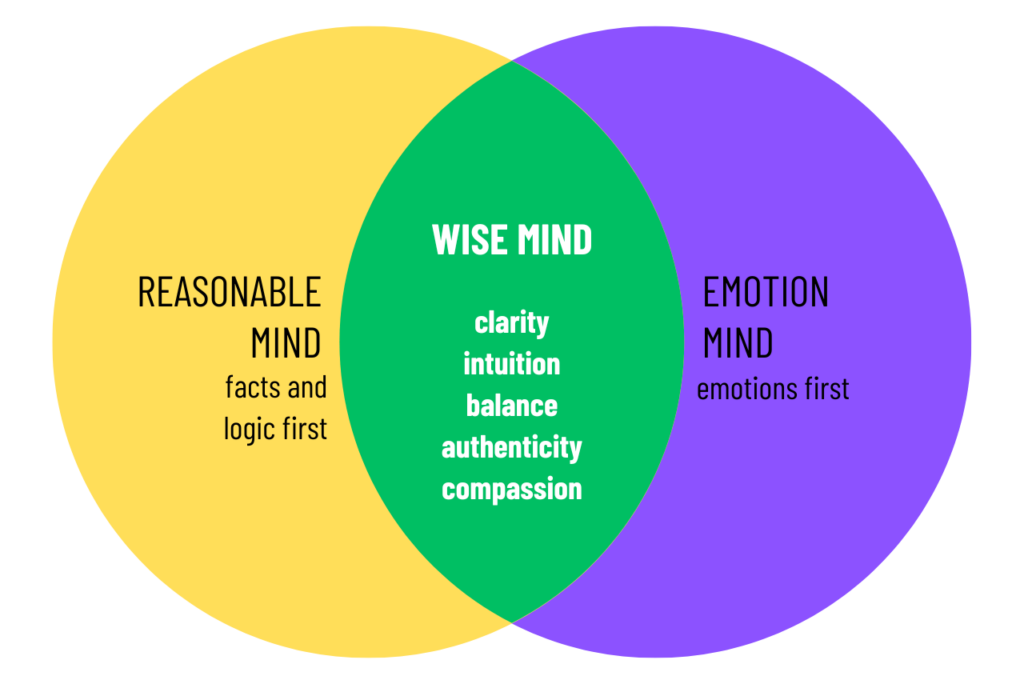List 3 healthy coping skills?
1= Listen to music
2= Talk to someone
3= Go for a walk
At about what age is the brain fully developed?
25 years old
What are ways we can use stress to strengthen us or benefit us?
Challenge to try something new/unfamiliar hobby
exercising/sports
Reframe this feeling-driven thought:
"I don't understand this math". "I'm going to fail at everything".
"I have understood challenging math concepts in the past, and I can and will do it again".
This is the process or act of exchanging, expressing or conveying information and ideas through writing, speaking and gesturing.
Communication
This is a simple technique that is excellent for managing emotions. Not only is it effective, but is also discreet and easy to use at any time and any place.
Deep Breathing, grounding
Which brain area is involved in reward processing and is particularly sensitive during the adolescent years?
Striatal regions / Striatum
This is the kind of stress that helps motivate us to work hard to accomplish tasks, makes us feel excited, and feel good about life. This kind of stress is all about sufficiently challenging ourselves without expending all our resources.
(In the moment thinking, "How can I route my stress energy to benefit me right now?")
Positive stress
Reframe this feeling-driven thought:
"Its pointless to try to talk to my mom, all she does is put me down and nag me to do things".
"I'm going to think of a time where my mom and I got along. I remember when I wrote down my feelings and shared calmly, she listened, so maybe she does care about my feelings".
This is the part of communication that conveys emotion without words. Tone of voice, posture, the movement of limbs, and eye contact all help the person receiving the message to better understand the speaker’s intentions.
Nonverbal communication
What are two things you can do for effective coping when.......
1) the two friends you sit with at lunch don't show up.
2) everyone is picking partners for a project in class, and you don't have a close friend to choose.
3) you wake up feeling unmotivated and refusing to get up, but you have school, band practice, and work.
1) Use "in the moment" thinking, and engage with someone you recognize/classmate.
2) Observe the current moment, ask someone to join the group.
3) behavior activation (journaling, logic puzzle, drink of water, bathroom)
The parasympathetic nervous system helps prepare the body for what response?
Rest and digest
This is the stress we typically think of that makes us feel overwhelmed when we do not have the ability to cope with the demand being placed upon us.
(Stuck in traffic, illness)
External stressors
Reframe this feeling-driven thought:
"I can't trust anyone, nobody gets me and nobody understands what I am dealing with".
"I remember meeting _______ for the first time, and felt so anxious, but after talking to her a few times, I realized that we have a lot in common, and now we are close".
Why is conflict an opportunity?
Answers may vary.
List 3 unhealthy coping skills?
Substance abuse
Avoidance
Procrastination
Sleeping too much or too little
The sympathetic nervous system helps prepare the body for what response?
Fight or flight
What is the first thing that comes to mind when you think of the word, "Anxiety"?
Open for discussion
Reframe this feeling-driven thought:
"I have no idea what my future looks like after high school, it's too much. I give up on trying to do anything".
"I am unsure what I want to do after high school, maybe I should take a personality test or talk to my school counselor about exploring my options, community service or trade, tech, or college/career experiences that I can attend".
Answers may vary.
This coping strategy teaches us to become more aware of the tension in our muscles so we can better identify and address stress.
Progressive muscle relaxation
This part of the brain is responsible for decision-making, learning, planning, emotions, impulse control, and reflection.
Prefrontal cortex
What are some ways you currently manage stress/anxiety, or ways you would like to incorporate into your life in the future?
Open for discussion
What is an example of a strong password?
Answers may vary
Av0cadoToa$t4Lunch4Ever!
Chelsea is feeling angry and upset with her parents for not agreeing with her idea. She threw her notebook across the table and started yelling, "YOU DON'T GET IT", "YOU NEVER LISTEN TO ME".
Is Chelsea practicing mindfulness? Is she using a wise mind, or an emotional mind in her reaction? Is fact or feeling in the driver's seat? What would you change about her reaction to practice effective communication?
1.) Calming strategy (before speaking)
2.) Use "I feel" statement including fact in driver's seat, with feelings in passenger seat.
3.) Provide processing time and actively listen other person to understand.
4.) Validate response, and continue using clarity in communication, preventing overwhelming emotions from overriding or distracting from what you are trying to communicate.
